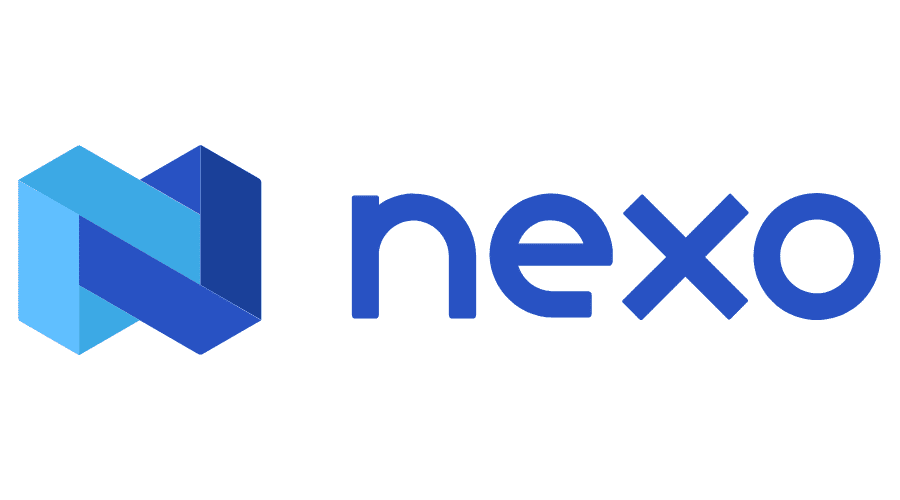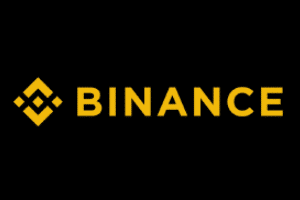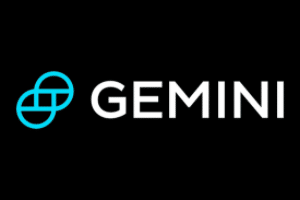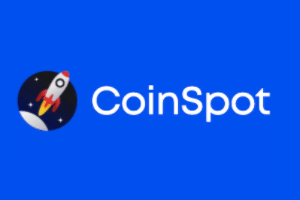Cryptocurrency exchanges are online platforms used to buy and sell cryptocurrency. These platforms are intermediaries between the buyer and seller, allowing users to trade cryptocurrencies using fiat money or altcoins. Many investors opt to use cryptocurrency exchanges due to their relatively low trading fees.
There are two main types of crypto exchanges, namely centralized and decentralized. Centralized crypto exchanges are the most common types of cryptocurrency exchange platforms. This is because they are run by corporations that have a physical presence and are regulated by the government. This creates a sense of security among investors. They are also accessible to institutional clients.
12 Best Crypto Exchanges 2022
| Name | Currency | Fees | Assets | HQ | Payment Methods |
|---|---|---|---|---|---|
| Bitstamp | USD, EUR, GBP | 0.5% | 150 | Luxembourg | Bank Transfer, Credit/Debit Cards & ACH, Cryptos |
| Nexo | USD, EUR, GBP | – | 38 | USA | Bank Transfer, Credit/Debit Cards & ACH, Cryptos |
| OKX | 30+ | 0.1% | 300+ | Seychelles | Bank Transfer, Credit/Debit Cards, eWallets, Cryptos |
| Binance | 42+ | 0.10% | 400+ | Global | Bank Transfer, SWIFT & SEPA |
| Coinbase | USD | Varies | 30+ | United States | Bank Account, Debit Card & Wire transfer |
| Gemini | USD | 1% | 5+ | United States | Credit/debit card &Local bank transfers from US banks. |
| Kraken | USD, GBP & EUR | 0.26% | 50+ | United States | Cash & Debit Cards |
| CEX.IO | USD & Others | 3.5% | 70+ | UK | Visa and Mastercard credit and debit cards |
| Bittrex | USD, EUR, GBP & JPY | 0.2% | 190+ | United States | Bankcard (VISA), Wire transfer, SEPA transfer, or Cryptocurrencies |
| Bitfinex | USD, EUR, GBP & JPY | 0.2% | 100+ | Hong Kong | Credit card/ Debit card |
| CoinSpot | AUD | 1% | 100+ | Australia | PayID, Direct Deposit, POLi, BPAY & cash deposit |
| KuCoin | 20+ Fiat Currencies | 0.1% | 150+ | Hong Kong | Credit/Debit card, Apple Pay, Google Pay &Bank transfer |
What’s a centralized cryptocurrency exchange (CEX)?
You’ve probably used them before, or you intend to use them in future, what’s a centralized cryptocurrency exchange? In simple terms, CEXes are private platforms that facilitate trading in cryptocurrencies while keeping custody of transaction history and assets. Because they are custodial in nature, they exercise some degree of control over users’ funds. Typically, they support fiat-to-crypto transactions, but this may vary depending on a user’s location.
Additionally, users can also convert one type of cryptocurrency into another. These are licensed corporations that have a physical presence i.e., offices, employees, and other such infrastructure.
Centralized exchanges require users to sign up and verify their identity. Users do not control the crypto assets they exchange, as they do not own the private keys for their wallets.
How do CEXs work?
Knowing how CEXs work is essential to helping one determine whether to use them or not. After all, CEXs are the biggest crypto exchanges in the world. So, how do they work? Centralized exchanges receive orders from individual or institutional clients and they typically match buy and sell orders that have the same price.
On the other hand, they may also act as market makers by providing liquidity to the tokens supported by their platforms to improve execution speeds.
Since these exchanges manage all the data from the orders being placed, they can also make that information available to market participants for analysis. Commonly the exchange receives a fee for granting access to this data.
Additionally, they enable developers to list their project’s tokens subject to the assets passing a vetting process.
Centralized vs. decentralized cryptocurrency exchanges
The debate on centralized vs decentralized cryptocurrency exchanges rages on due to their unique benefits and differences. CEXs act as a trusted third party to facilitate trades. They leverage their established reputation to maximize investor confidence. They also provide a more understandable UI for traditional investors too.
In contrast, with a decentralized crypto exchange, greater ownership over your own assets requires you to learn more about how it all works. You must also carry a heightened appetite for risk. Greater knowledge affords better security and protection from malicious third parties. CEXes also provide more traditional forms of security.
| Exchange | Advantages | Disadvantages |
|---|---|---|
| Centralized | Protects against scandals. Are friendlier to institutional clients. Good customer service. Some CEXes offer insurance for client assets. Provides investing tools. | Fewer trading options. Strict regulations. Risk of bankruptcy. Hacking risk. |
| Decentralized | More trading options. Lower Transaction Fees. Have more tokens, on average Transactions are transparent Not regulated | Only accept cryptocurrency. Risk of price manipulation. Not user-friendly to newbies. They have comparatively low liquidity. |
Centralized cryptocurrency exchanges provide some legitimacy to the trading of digital currencies.
Both centralized and decentralized exchanges can be used to trade cryptocurrencies.
Crypto exchanges: 7 factors to consider
To make the decision on which crypto exchange to use, you’ll need to look at the details of each exchange and choose the one that best suits your needs.
There are many factors to consider when choosing a cryptocurrency exchange. Here are 7 of the most important:
Safety and security
Safety and security are paramount considerations when choosing a cryptocurrency exchange platform. Holding coins on an exchange means trusting someone else with that money. In most cases, if the exchange gets hacked or an employee steals coins, investors end up empty-handed.
Potential features worth considering might include these features:
- Cold storage wallets for almost every client.
- Easy transfer between exchange and hardware wallet.
- SSL Site Security Certificate.
- Multi-layered verification for withdrawals.
- Two-factor authentication
Regions covered
It sounds preposterous, but not all crypto exchanges are available worldwide, due to administrative and legal reasons. This is usually due to financial regulations that primarily govern the crypto market.
Before engaging in this market, make sure you contact your trading platform and bank about the acceptance of your fiat currency and deposit exchanges supported in your country. You should also mind that availability of exchanges in any country keeps on changing.
Cryptocurrencies supported
Most of the exchanges allow investors to buy/sell/trade globally recognized cryptos such as Bitcoin, Ethereum, USD Tether, and Litecoin.
However, if you want to invest in some lesser-known cryptocurrencies, you must check whether the exchange allows trading in that crypto against your fiat currency.
You also must have apt liquidity to trade those cryptos whenever you want to, with international standards, and the platform must be trustworthy.
Buying limits
Cryptocurrency exchanges may impose limits on the volume of orders being placed at any given time. Since most people will not have the financial backup to purchase huge quantities, there won’t be any issue while placing orders.
However, if you intend to place large orders, then it would be better to open accounts in multiple exchanges. However, rarely do retail traders exceed the trading limits on leading exchanges.
Liquidity
Traders need liquidity so they can make trades at any time without moving the market too much. This means an exchange must have a high enough volume of orders flowing through its order books on any given day.
In order to get that volume, an exchange must have either a lot of users or users who hold a large number of assets on the exchange and trade them frequently. Liquidity concerns, especially for newly-listed altcoins is the reason why top 10 crypto exchanges are becoming more popular.
Customer support
New users, in particular, might have a number of questions regarding the basics of crypto and how the exchange works.
Sometimes the need for customer support could be urgent, with money at stake. Crypto markets move quickly, and waiting days for a response from customer support could have real financial consequences.
That’s why investors should look into the reputation of an exchange’s customer support service.
Payment methods
In a crypto wallet, you cannot buy and sell bitcoins with fiat currency because they are made for transactions such as sending, receiving, and storing.
Therefore, one of the most significant considerations when choosing cryptocurrency trading platforms is the number of payment options available.Some exchanges support only a few payment options.
So, check the payment option that an exchange provides for buying crypto. If there are limited payment options, do not go with an exchange.
Top 12 Centralized Crypto Exchanges
Everyone seems to want cryptocurrency these days. But to get in on the action, you’ll need a crypto exchange where you can buy and sell digital currencies.
We combed through the top 10 crypto exchanges and we present a list of exchanges we consider the best. Understandably, most of them are currently the biggest crypto exchanges.
1. Bitstamp

Bitstamp is an excellent choice for fee-conscious crypto investors. This crypto exchange is also easy to use, so it works well for everyone from beginners to advanced traders. However, there are a few major cryptocurrencies missing from its lineup.
Bitstamp is one of the best cryptocurrency exchanges in terms of trading fees. It has a straightforward fee structure, in which your trading fees are based on your 30-day trading volume.
It offers a straightforward platform where you can quickly learn how to buy and sell cryptocurrency.
Bitstamp also offers Tradeview, an active trading platform. This has more advanced charting features and trading forms. One of the nice things about Bitstamp is that trading fees are the same whether you use its regular platform or Tradeview.
Pros
- It allows for cryptocurrency purchases using fiat currency via a bank account, debit card, or credit card.
- Offers 24/7 dedicated phone customer support.
Cons
- More limited range of available cryptocurrencies.
2. Nexo

Nexo is a reputable Swiss-based crypto lending and exchange service founded in 2018. By numbers, it claims to have over $12 billion in assets under management and serves over 4 million users in more than 200 countries.
Nexo provides 40 cryptocurrencies that combine into over 300 market pairs for exchange purposes. Yet, their lending facility is a lot more interesting, and this is where Nexo has the upper hand.
Interest rates range from 0% to 13.9% with on-the-spot approval and no credit checks. Collateralized loans begin from $50 or $500 using any of the 38 supported coins as security. Furthermore, lenders can earn up to 17% yearly interest.
Overall, Nexo may be the perfect destination if you’re interested more in crypto lending and plan to exchange coins only from time to time.
Pros
- Regulated crypto lending service
- Top-notch security
- NEXO utility token with benefits
- 24/7 email and live chat support
- No monthly repayments on loans
Cons
- Restricted coin selection compared to other exchanges
3. OKX

Founded in 2017 (and based in Seychelles), OKX describes itself as a place for users to ‘discover crypto on top of the world’s most powerful exchange.’ OKX is an all-encompassing marketplace used by clients in more than 100 nations.
It offers 344 coins for trading purposes through basic spot and leveraged perpetuals, options, and futures, which you can partake in with zero minimum deposit. OKX’s maker and taker fees are 0.08% and 0.10%, respectively, below the industry average.
Aside from crypto, customers can fund and withdraw with bank wire, credit/debit card, and Apple Pay using over 30 fiat currencies.
Moreover, OKX offers a separate platform where users can borrow and earn through saving, staking, and other interesting products in DeFi (decentralized finance). Ultimately, OKX is the one-stop shop for all things crypto-related.
Pros
- Reasonable trading costs
- Comprehensive choice of available coins
- Offers derivatives on margin
- Provides own utility token (OKB)
- Offers many other extra crypto services
- Phone, email, and live chat support are available
Cons
- Better suited for advanced traders
- Complicated multi-tiered fee structure
4. Binance

Binance is a popular cryptocurrency exchange designed for experienced cryptocurrency investors. It offers relatively low trading fees and a wide selection of cryptocurrencies for trade globally, though its trading options are more limited in the US
Binance is now extremely well established, offering over 40+ fiat currencies and 300+ cryptocurrencies to customers around the world, with no deposit fees and extremely competitive trading fees (maximum 0.1%).
Through its desktop or mobile dashboards, Binance offers a wide array of trading features, including an impressive selection of market charts and hundreds of cryptocurrencies. Users can also access a variety of trading options including futures and options, as well as several order types.
Pros
- Low trading fees.
- Educational resources are available.
- Trading fee discounts are available.
- Supports over 365 cryptocurrencies.
- Wide selection of trading options and order types.
Cons
- Lengthy identity verification process.
- Poor regulatory history.
- A limited selection of assets.
5. Coinbase

Cryptocurrency early adopters have been buying and trading coins on Coinbase since 2012, but the platform gained mainstream attention in 2021 when it became the first crypto exchange to go public on the Nasdaq.
Today, more than 56 million users are trading over $300 billion worth of cryptocurrency on Coinbase each quarter. It has the third-highest trade volume of all exchanges, according to crypto data firm CoinMarketCap.
Coinbase is a cryptocurrency trading and investing platform that offers users the ability to buy, sell, and exchange over 100 tradable cryptocurrencies such as Bitcoin, Ethereum, and Dogecoin. Coinbase is a large company with over 73 million users and $255 billion in assets on the platform
Pros
- Easy to use for cryptocurrency beginners.
- Support for a large number of cryptocurrencies.
- Opportunities to earn cryptocurrency.
- Lower pricing is available with Coinbase Pro.
Cons
- Potentially high transaction fees.
- Customer service issues.
- No access to trade many altcoins.
6. Gemini

Gemini is one of the top 15 crypto exchanges, according to data and analytics company CoinMarketCap. In the crypto world, Gemini is known for the security its platform provides; its availability in all U.S. states, including New York, a frequent omission from crypto exchanges.
Gemini offers a beginner-friendly platform and robust educational resources, making it a decent choice for new crypto investors who are learning the ropes.
The crypto exchange’s robust security offerings, over-the-counter (OTC) trading platform, and APY-earning crypto loan feature should appeal to crypto trading veterans who are looking to delve deeper.
Pros
- Strong security measures.
- Over 40 cryptocurrencies to choose from.
- Simple interface for beginners, combined with more advanced options for active traders.
- Available in all U.S. states.
- Earn up to 7.4% APY on your cryptocurrency balance with Gemini Earn
- Learning hub.
Cons
- Charges relatively high fees.
- The fee structure is complicated and hard to understand, especially for beginners.
- Customer support is only available via email.
- No margin trading or short selling is available.
7. Kraken

Kraken is a crypto-industry giant founded in 2013 by cybersecurity expert Jesse Powell. It’s available all across the globe except for some blacklisted countries.
Kraken is great for altcoin trading and supports a variety of payment methods once you link your bank account to your trading profile. The most popular ones are bank transfers and wire transfers via SEPA, SWIFT, or FedWire.
Kraken is an extraordinary centralized exchange for advanced users who like challenging themselves with staking, futures, and margin trading.
Pros
- Large selection of digital assets.
- Low fees for advanced traders.
Cons
- Limited options for funding accounts.
- Not available in all U.S. states.
8. CEX.IO

CEX.IO is a regulated global cryptocurrency exchange that enables traders and investors to buy, sell, borrow, and earn crypto. With its wide range of tradable assets and advanced trading features, experienced crypto traders will find what they are looking for on CEX.IO.However, beginners may find the platform’s many features overwhelming.
CEX.IO started out in 2013 in London as a Bitcoin exchange and cloud mining provider. At some point its mining pool, known as Ghash.io, was so big it held 42% of the total network mining power.
CEX.IO allows you to buy cryptocurrency using your credit card, a wire transfer, a SEPA transfer (if you live in the EU), or an ACH transfer (for US residents). The site supplies two ways for purchasing crypto – a trading platform and a brokerage service.
Pros
- Regulated and licensed.
- Supports a large number of cryptocurrencies.
- Provides an opportunity to earn crypto.
- Offers crypto-collateralized loans.
Cons
- Newbies may find it complicated.
9. Bittrex

Established in 2014, Bittrex is the world’s top 3 cryptocurrencies exchange. The exchange is based in Seattle, USA, and has a daily trading volume of around $300 million.
Bittrex’s success in maintaining its security integrity in the wake of several high-profile security breaches at several major cryptocurrency exchanges around the world can largely be attributed to the security experiences of its founding team.
Bittrex’s trading platform is a proprietary platform that was designed around the concept of elastic computing. By designing its platform around this concept, Bittrex is able to offer superior trade execution. In short, Market orders which are placed can be executed almost instantaneously.
Pros
- Efficient trading platform.
- Flat rate fees of 0.25% on all trades.
- Have provision for anonymous trading.
- No fees on deposits and withdrawals.
Cons
- The platform doesn’t support bank wire transfers except for enhanced verified accounts.
- Fee is higher than average.
- Poor customer support.
10. Bitfinex

Bitfinex is a premier destination for seasoned traders all over the world and one of the top exchanges in terms of recognition and trading volume. It serves all except a few countries in the world (mentioned below) and supports both fiat-to-crypto and crypto-to-crypto trades.
Other notable features include margin trading, limit and stop orders, over-the-counter (OTC) trades, and others. While there are many options available, everything is laid out in an impressively intuitive fashion, with easy-to-navigate dashboards and menus.
Yet despite the robust security measures, Bitfinex has been hacked twice (in 2015 and 2016). Since then it has significantly improved its security and compensated lost funds to every user
Pros
- Low trading fees.
- Margin trading, derivatives, and advanced order types are supported.
- Paper trading and mobile app suitable for newer cryptocurrency traders.
Cons
- History of regulatory missteps and fines.
- Questionable involvement with the Tether currency.
- Not available in the United States.
11. CoinSpot

CoinSpot is one of the longest-standing Australian crypto exchanges on the market. The crypto platform was launched back in 2013 in Melbourne. Since then, It has gradually expanded its offering and support into some of the best in the industry.
CoinSpot supports over 200 cryptocurrencies and super low fees, starting at 0.1%. The crypto exchange also provides a variety of payment methods and includes fiat deposit support that can be administered through instant pay providers such as POLi, PayID, Osko, BPAY, or traditional bank transfers.
The trading platform is super-efficient when it comes to processing users’ funds. I had all of the assets I had purchased on my balance within two hours.
The trading exchange also has a very attentive and professional support team that can be reached through the live chat feature or a support ticket
Pros
- A vast selection of altcoins.
- Low trading fees.
- Excellent support.
- A wide range of deposit methods to choose from.
Cons
- Limited insurance.
- Weekly limits on withdrawals.
12. KuCoin

KuCoin is the 3rd-largest retail crypto exchange by market cap.1 Unlike some exchanges, KuCoin only trades cryptocurrency.
Users can buy crypto with a bank card, wire transfer, or PayPal, but there are no fiat currency trading pairs available. This allows the exchange to skirt some regulations and provide a more anonymous service to its users.
Still, the exchange did implement know-your-customer (KYC) regulations in 2018, with the goal of increasing user trust and improving account security. The KYC process involves providing identifying information like a government-issued ID.
However, KYC verification is not currently required by KuCoin, it’s simply highly suggested
Pros
- Competitive fees.
- Greater anonymity for traders.
- Large selection of different cryptocurrencies.
Cons
- Low trading volume.
- Crypto-only exchange (does not trade fiat currency pairs).
- Less regulated than other platforms.
- Poor customer service, many complaints.
Summing up: what is the best CEX?
If you’re looking to get started with cryptocurrency trading or investing, choosing the best exchange for your goals is important. Whether you want the most currencies, the lowest fees, or the easiest experience, there is a good option for you.
From the top crypto exchanges above, I would recommend Binance as the best crypto exchange in the market today. This is because it supports several currencies, has low fees, offers several trading tools, and has developed a global stature.
Nonetheless, you should only go for a platform that complements your investment and trading needs. Essentially, there is no one-size-fits-all solution in this market. The best approach is to select a blend of the best CEX and DEX, in line with your needs. This will ensure that you do not miss out on what DEXes offer by restricting yourself to CEXes.




